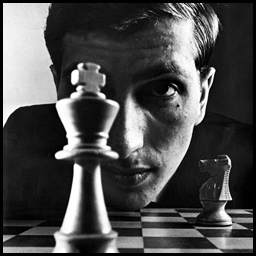Monthly Archives: February 2013
47 — Lawrence Joseph Ellison
a.k.a: The Other Software Billionaire
Occupation: CEO
Born: 1944
Died: Not Yet
Brief Description:
Larry Ellison was born in New York out of wedlock. His mother, judging herself incapable of caring for him, gave him up for adoption to her aunt and uncle.
After graduating from high school, Larry attended the University of Illinois but later dropped out. He then continued his studies at the University of Chicago but dropped out again.
In the 1970s, Larry worked for the Ampex Corporation as a programmer on a database project for the CIA which he named ‘Oracle’.
Soon after, he founded ‘Software Development Laboratories’ (SDL) and subsequently renamed it ‘Relational Software Inc.’ and later ‘Oracle’ after its flagship product ‘Oracle Database’.
The original release was called Oracle 2. There was no Oracle 1.
Although IBM was the primary database system for companies, it did not cater to smaller companies and microcomputers. This allowed Oracle, Sybase and Microsoft to fill in that void.
The original Sybase software was sold to Microsoft and became the well-known SQL Server.
Today, the market is still dominated by IBM, Microsoft and Oracle.
Larry also served for a few years as a director of Apple Computer when Steve Jobs returned to the company in 1997.
He is still the CEO of Oracle and the company keeps on growing…
Why he’s on the list:
As I said in one of my previous posts, I do not like college dropouts but what I like even less are the entrepreneurs who take that hypocritical symbolic $1 salary.
Management and ownership of a company are two very distinct topics and should remain separate. Unlike most entrepreneurs, Larry seems to understand this difference.
Even though he owns more than 20% of Oracle and is ranked by Forbes as the 8th richest person in the world, he also tops the list of the best-paid executive of a public company with total compensations over the past decade reaching well above $1 billion.
It’s like a ‘fuck you’ to the supposedly modest (but hypocritical) CEOs of other successful tech and internet companies whose salary is 1$.
And I like that so I included him on my list.
Quote Ellison
Quote
“Twenty minutes compared to never, that’s a lot.”
Image
48 — Robert James Fischer
a.k.a: The Bad Boy of Chess
Occupation: Grandmaster
Born: 1943
Died: 2008
Brief Description:
Bobby Fischer was born in Chicago to a Jewish mother who had moved from Switzerland to the US. The actual identity of his father is unknown. So Bobby grew up with his mother and older sister. When he was six, his sister bought him a chess set and he learned to play from the instructions.
A few years later, Bobby joined the Manhattan Chess Club. At age 13, he defeated the winner of America’s Chess Championship by sacrificing his queen. This game became known as the game of the century. One year later, he won his first US Chess Championship, the first of eight. Later that year, he set the record for becoming the youngest chess Grandmaster.
In 1972, Bobby Fischer played against Boris Spassky for the World Chess Championship title. The game was seen as a proxy battle for the Cold War between the US and the Soviet Union. And although he hated most Soviet players and accused them of collusion, he had respect and affection for Spassky. He ended up winning, thus becoming the first and only American to win the World Chess Championship in the 20th century.
Bobby did not defend his title in 1975 and then disappeared from the chess scene for almost 20 years, after which, he played a rematch against Spassky and won again. This was his last time playing chess in public and only time since his world championship title.
He died of illness at the age of 64, coincidentally the number of squares on a chessboard.
Why he’s on the list:
Bobby Fischer found his passion in chess and went to the extremes to develop his skills.
He read books, analyzed games, and even played against himself because he had no one else to play. He played for the fun, for the challenge, for the love of the game.
Chess was his life.
He loved the imagination and creativity that chess offered and eventually came up with his own chess variant (Chess960) which rendered the memorization of opening moves rather impracticable, thus compelling the players to rely on their talent and creativity instead.
“Let’s play. I’m willing to play anywhere,” says Bobby.
This leads me to my second point. You can’t be so passionate about an activity and so skilled at it and yet remain modest. Modesty is for average people. When you’re consumed by something, you want to prove to yourself and the world that you’re invincible. In Bobby’s words: “I am the best player in the world and I am here to prove it.” It’s a natural consequence of the love of a game rather than mere arrogance, as many tend to think. Provocation is just another way to challenge yourself further, push the limits, be the best, as you’re being put on the spot by those waiting your downfall.
Today, he is still regarded by many to be the best chess player of all time but it’s his love for playing rather than his status that puts him on my list.
Quote Fischer
Quote
“I object to being called a chess genius because I consider myself to be an all-around genius who just happens to play chess, which is rather different.”



